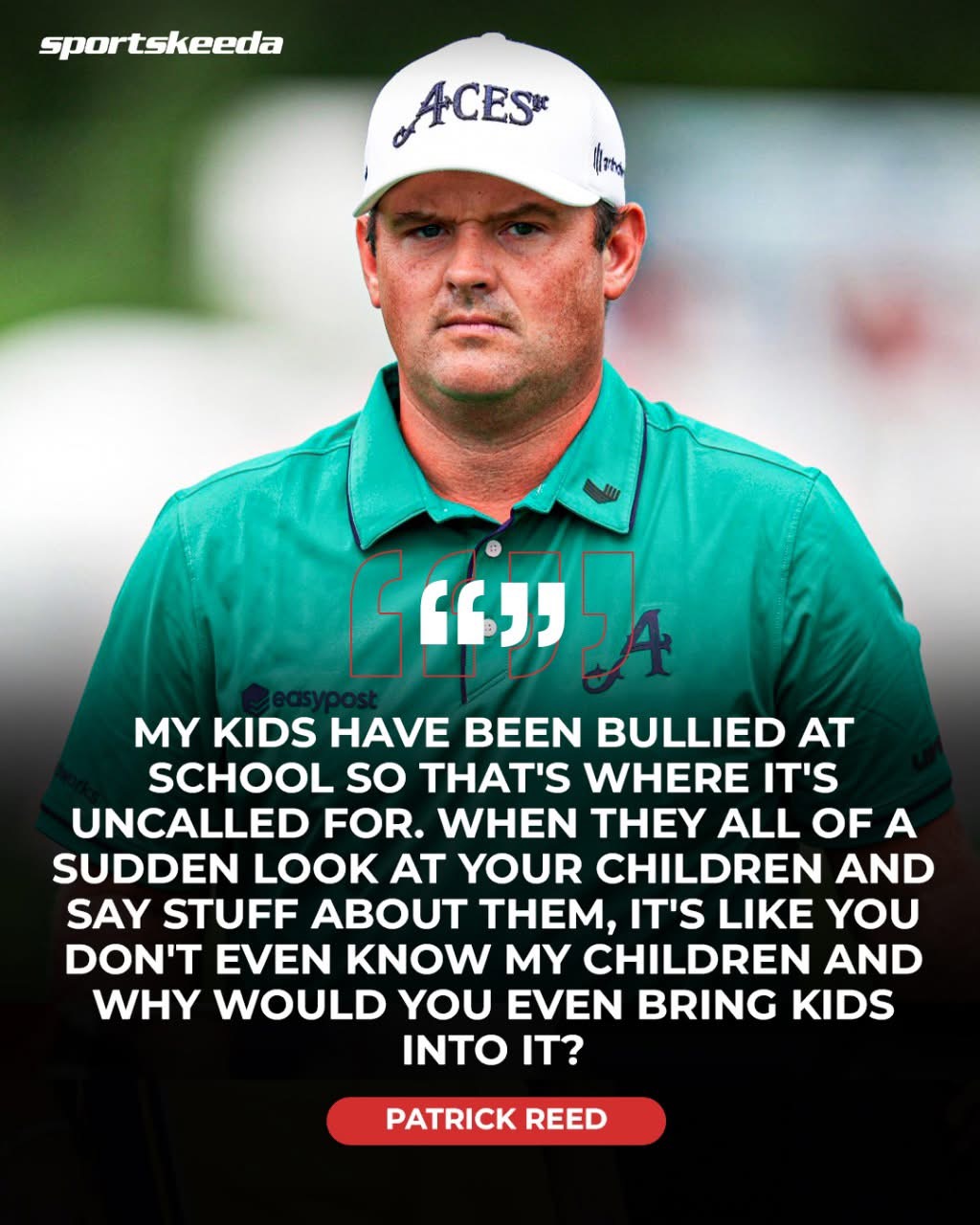After a strong round at the International Series Philippines, Patrick Reed took a moment away from golf to speak candidly about the personal challenges he and his family have endured in recent years — particularly the impact of his controversial reputation on his children. The former Masters champion, often portrayed as one of golf’s most polarizing figures, revealed that the “false narrative” surrounding him has extended far beyond the fairways, now affecting his family life in painful ways.
Reed, who finished among the top performers in the Philippines event, used his post-round interview to express how the media’s portrayal of him as golf’s “bad boy” has gone too far. He said that while he has learned to cope with public scrutiny over the years, it has now crossed a line by spilling over into his children’s lives. According to Reed, his kids have been subjected to bullying at school because of stories and public perceptions he insists are unfounded and exaggerated.
“It’s one thing when people want to come after me, criticize my game, or question decisions I make on the course — that’s part of being in professional sports,” Reed explained. “But when that turns into something that affects my family, when my children are being teased or treated differently because of things written or said about me, that’s when it becomes unacceptable. They didn’t sign up for that.”
The American golfer, who won the 2018 Masters and has represented the U.S. in multiple Ryder Cups, has long been a lightning rod for controversy. His fiery on-course demeanor and a series of disputed rulings over the years have earned him both passionate supporters and harsh critics. Yet Reed maintains that much of what’s been written about him — from claims of poor sportsmanship to personal attacks — is based on distortion and speculation rather than truth.
“I’ve made mistakes like anyone else, but some of the stories have painted me as something I’m not,” he continued. “It’s frustrating to see things taken out of context, and it hurts even more when it reaches home. I want people to understand there’s a human side to all of this. I’m not just a headline or a character people can pick apart. I’m a father and a husband, and it’s hard watching your kids deal with something they don’t deserve.”
Reed’s comments come amid ongoing efforts by players across different tours — including LIV Golf, where Reed currently competes — to reshape how athletes are perceived beyond their professional personas. With social media amplifying every controversy, the line between sports performance and personal life has blurred more than ever. For Reed, that distinction has nearly disappeared, leaving his family caught in the crossfire of public opinion.
Those close to Reed describe him as fiercely competitive but deeply protective of his family. His wife, Justine, who also serves as part of his management team, has been vocal in defending him from what she calls “unfair treatment” by sections of the media and golf community. Together, they’ve raised their children largely out of the public eye — a task that’s become increasingly difficult as Reed remains a lightning rod in professional golf.
Despite the emotional weight of his comments, Reed remains focused on his golf. His performance in the Philippines marked one of his strongest outings in recent months, signaling a possible resurgence in form. When asked if the off-course negativity ever affects his play, Reed acknowledged that it sometimes does, but said he’s determined not to let it define him.
“I’ve always played with passion — that’s who I am. Sometimes that gets misunderstood, but I’m not changing who I am because of noise outside the ropes,” he said. “The best thing I can do is keep showing up, keep competing, and hopefully remind people that behind the headlines, I’m just someone who loves this game and works hard every day.”
For Reed, the message is clear: he wants to move forward — not just as an athlete, but as a person striving to protect his family from the storm that fame and criticism can bring. “All I ask,” he said in closing, “is that people see the full picture before judging. Golf is my career, but my family is my life. And that’s where it hurts the most when the false narratives go too far.”
Patrick Reed’s emotional remarks serve as a reminder that professional athletes, regardless of public opinion, carry personal burdens that often remain unseen. In a sport built on precision, composure, and reputation, Reed’s plea for fairness and empathy cuts deep — a call not just for understanding, but for humanity.









